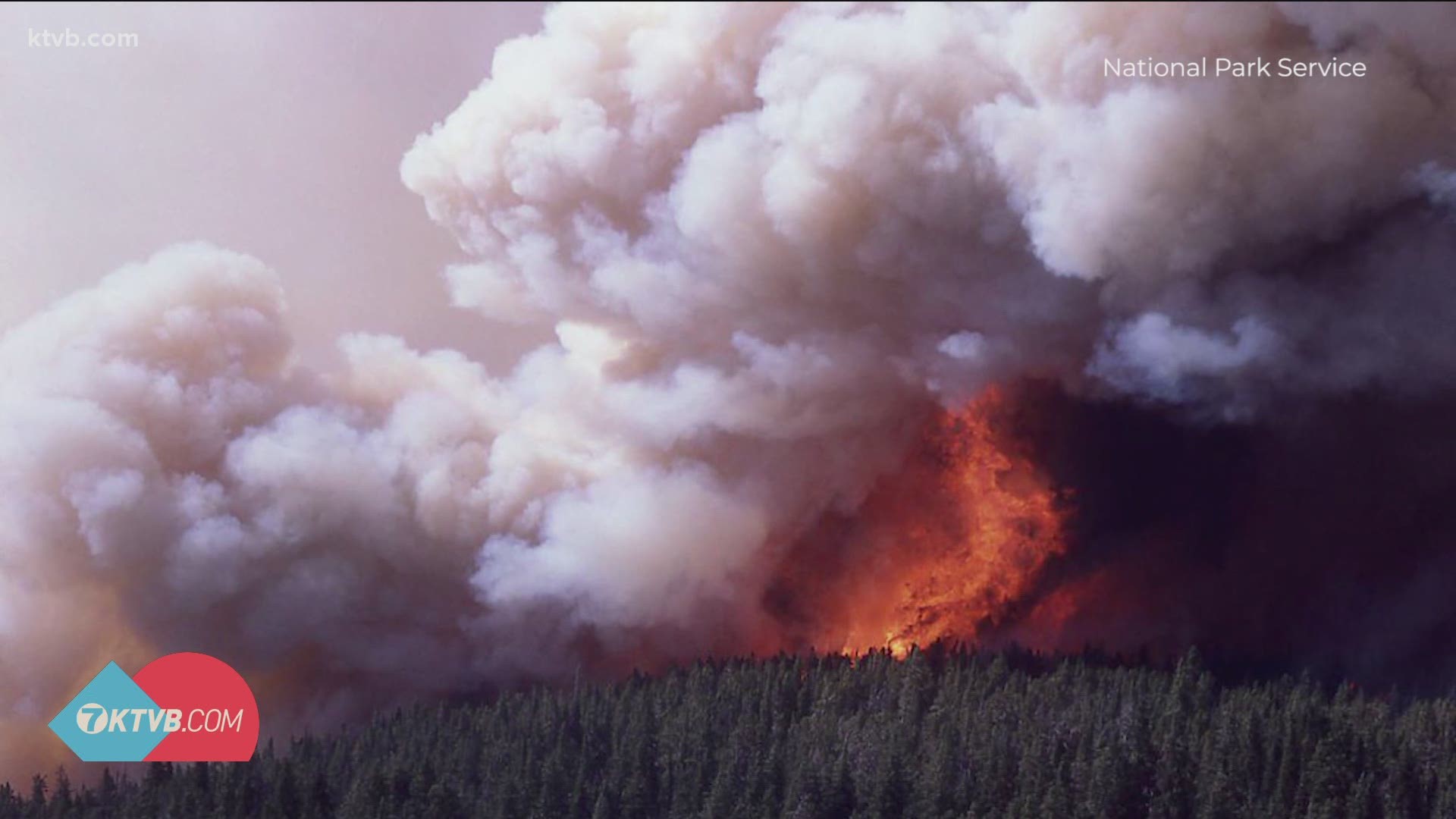MOSCOW, Idaho — A University of Idaho graduate dendrochronologist, a person who studies growth rings of a tree to figure out its age and environment events, recently completed a study regarding how the climate has changed over the last 1,200 years.
Karen Heeter, a third-year graduate student at the University of Idaho, wanted to see what the rings of a tree could tell her about climate change. Specifically, she wanted to examine summer temperatures from the year 770 to now.
Heeter began her study at Yellowstone National Park, where she set to find the correlation between temperatures and wildfires.
In 1988, the Yellowstone Fires started with a lightning strike. By the time snow fell, the fires burned 1.2 million acres. Within the park, 793,000 acres of the park were burned.
That year was the fourth warmest on record in the Yellowstone area since 770. The record was beaten in 2016 when temperatures reached the highest level in 1,250 years.
Heeter began this study in 2018 with the goal of contextualizing the changes in summer temperatures. To find that information, she and her team took samples from downed trees and examined the rings within them.
"They're telling us that through time, temps varied and that things are getting warmer," Heeter said. "Trees kind of keep a journal of environmental conditions through time, so they're recording all of these temperature anomalies through time."
Her team found that the hottest summer in Yellowstone was just five years ago.
"This reconstruction that I've done is an estimate, right?" Heeter explained. "So based on the model, yes, our model places 2016 as the top-ranking single year for summer but I need to put that caveat in there too, that it is an estimate."
These findings are also part of a warming trend Heeter and her team have seen over the last 20 years.
"I worked in wildland fire fighting and so I'm personally really interested in understanding the relationship between fire behavior and climate," she said. "I'm truly interested in if we're able to use this type of historical contextualization of temperature trends to kind of help us guide how we manage ecosystems in the future."
Heeter is confident in the results of her study since the rings on the tree she sampled match the temperature records the park has kept since 1905.
Join 'The 208' conversation:
- Text us at (208) 321-5614
- E-mail us at the208@ktvb.com
- Join our The 208 Facebook group: https://www.facebook.com/groups/the208KTVB/
- Follow us on Twitter: @the208KTVB or tweet #the208 and #SoIdaho
- Follow us on Instagram: @the208KTVB
- Bookmark our landing page: /the-208
- And we also turn each episode into a podcast on Podbean
- Still reading this list? We're on YouTube, too:

